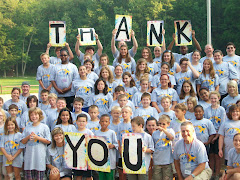
A few more helpful tips for bereavement and the holidays:
GRATITUDE - When we are grateful for life's blessings and for what we have, we distract ourselves from what is wrong with our lives. We fixate and ruminate less on what is missing. Being thankful for our children, our healthy minds and bodies. Being willing to be appreciative all the small things in our lives that make up the big things. Our ability to see, to hear, to think, to reflect, to notice, to enjoy and to feel deeply increases our sensitivity and awareness of the world around us.
EXERCISE - Exercise is a good antidote for stress through the holidays and stress at other times as well. Enjoying exercise on a regular basis is something good to include in our lives. Whether we walk, swim, bike ride or hike, moving our bodies allows us to be outdoors and observe nature. It often takes us out of ourselves and into the world. It may distract the griever from the constant state of anxiety which often accompanies early grieving. We release endorphins in our brain when we exercise that give our mood a lift. Exercise is often prescribed for depression and depressive thoughts.
NUTRITION - The bereaved often cannot eat, do not enjoy food, or may be inclined to eat too much or eat junk foods. Often the grieving person loses interest in food shopping because they don't know how to shop for one, or they don't want to cook for themselves. Appropriate nutritional habits are important through the grieving period because the immune system is down due to stress. Everything one can do to stay healthy is helpful. One of the signs that the bereaved is doing better is the indication that they care again about proper nutrition and make the effort to eat more than cheese and crackers. If a bereaved person was a caregiver and spent a lot of time cooking for an ill spouse they would have to learn to slowly convert this energy and give themselves permission to take good care of themselves. This is appropriate and not an indulgence. It is not selfish; it is good self-nurturing.
ADEQUATE REST - Sleep often gets disturbed during times of extreme stress. Being mindful of getting enough sleep is a good idea since sleep patterns can be interrupted. People often report that they may fall asleep but have trouble staying asleep. If one was used to sleeping in a bed with their spouse, there is an increased awareness of the empty bed. People tend to oversleep or not sleep enough during high stress times. Listening to soothing music before bedtime is relaxing; not listening to the news before going to bed is a good idea. It is important to not over stimulate the mind at least an hour before bedtime.
FAMILY AND FRIENDS - Reaching out to family and friends is particularly helpful at holiday time. Calling and making arrangements for activities and having plans are useful for getting through the holidays. Friends and family can provide comfort, safely, warmth and love. Surround yourself with the people that bring out the best in you. Talk to your friends and allow them to include you in their plans. Accept invitations, try to laugh and see funny movies. Be less attached to being a third wheel and more attached to how wonderful it is to have people in your life that care and want to be with you. Initiate a dinner or a movie or some activity to share. Be with friends or family members that help you decrease your stress not increase it and look forward to the fact that next year will be easier for you. It is the first experience of holidays that is the most difficult to get through. Encourage yourself to participate. Hopefully, next year will be easier and you will have more events to look forward to that bring you joy.

 A few more helpful tips for bereavement and the holidays:
A few more helpful tips for bereavement and the holidays:
